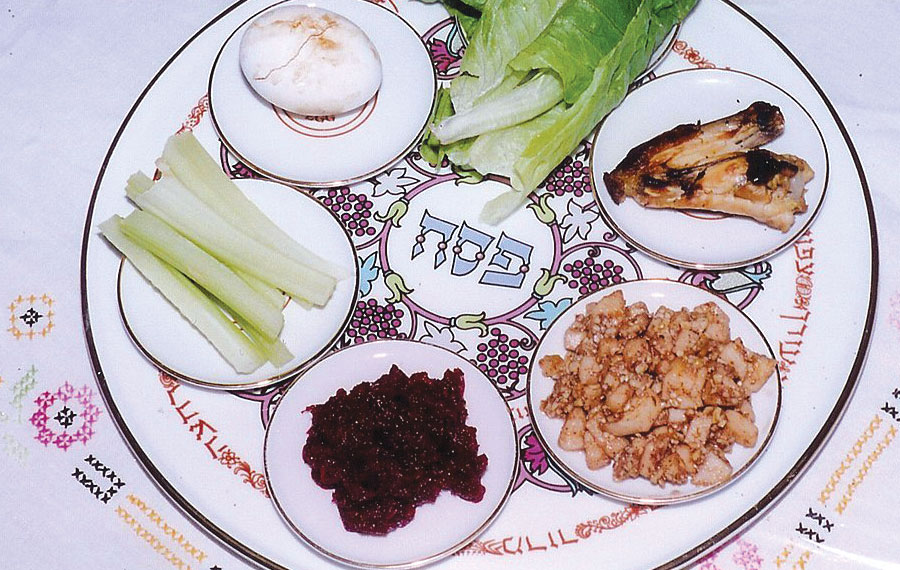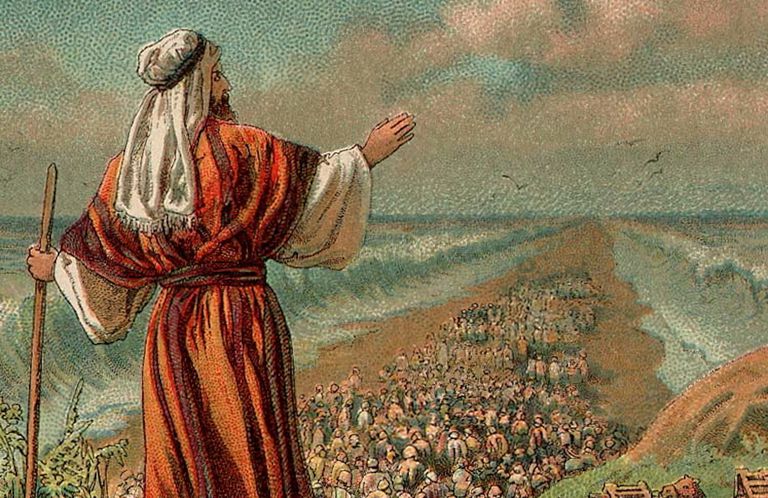
This year, Passover seems unreal. Instead of a gathering of friends and family (including the kvetchy relative that we all dread) it’s just going to be the immediate family. The vast majority of Jews celebrate this holiday in one form or another —be it a long seder night of recollections about the genesis of the Jewish people, or just a perfunctory seder with some matzo, wine, the four questions and on to dinner.
For the first time ever I’ll be making a Passover seder with just my wife. No children, grandchildren or the grand community seder we conduct every year. Interestingly, this is exactly the way the Jews celebrated Passover the first time in Egypt 3,332 years ago. It wasn’t a communal celebration. Each family followed a Divine command to bring a sheep into their homes, five days before the Exodus. They were instructed to ritually slaughter the sheep, using it in their homes for the first Passover observance. The sheep was the Egyptians’ deity. The message of the Jewish people to their erstwhile masters was clear: we reject your idolatry and are ushering the age of monotheism into the world. Those who doubted the promise of freedom, and many Jews did, recognized the miracles of God when on Passover eve the Jews left Egypt in haste.
Finding the inspiration to make this year’s Passover special is somewhat daunting. I am reminded of the Russian Jewish refugees that surrounded me in my youth while studying in Israel. They lived through the darkest days of Communism during Stalin’s regime. Many of them part of the Chasidic underground resistance that kept Judaism alive while the Soviets tried to stamp it out. Though the government permitted some elder Jews to congregate in a synagogue for propaganda purposes, the youth were forbidden to study their religion. A network of schools operated by Chabad gathered Jewish children clandestinely to study the Torah inspire them to maintain their religious beliefs. Many of the teachers were arrested and exiled. Some were ultimately killed by the Soviets.
One of the leading activists, Rabbi Lazer Nanes, was sentenced to 20 years in a Siberian labor camp for the crime of teaching Torah. While in the camp, he earned the nickname “Subbota,” or “Sabbath observer,” for his principled refusal to work on Shabbat. The toughest time of the year was the eight days of Passover when he would not eat bread or any other leavened products. It was a battle against starvation. Some years he was sent a few matzos from home with some potatoes or eggs. Other times, sympathetic guards surreptitiously helped him. But there were years he barely made it through the holiday. His dreams of freedom became a reality in 1967. He left Russia and lived until a few months short of his 100th birthday in Jerusalem, where today, a street carries his name.

While we may be alone, let us take inspiration from the fortitude of Rabbi Lazer Nanes, who celebrated the holiday joyously, though completely isolated, in the harshest conditions of Siberia with almost nothing to eat. He could have rationalized that Jewish law would probably permit him to eat some bread if he was liable to starve. Yet, he wholeheartedly observed the commandments and trusted in God.
Today we are celebrating in our homes with an abundance of food, and while our family and friends can’t join us, they are nearby also observing the holiday.
This Passover carries an important message: In just one moment, the Jews who had been enslaved hundreds of years in Egypt, realized freedom, overcoming the oppression of the superpower of the time to leave Egypt with some two and half million people marching with pride. May we too be delivered instantly from the darkest situation that impacts all of humanity this Passover.
Rabbi David Eliezrie is the president of the Rabbinical Council of Orange County California. rabbi@ocjewish.com




















 More news and opinions than at a Shabbat dinner, right in your inbox.
More news and opinions than at a Shabbat dinner, right in your inbox.